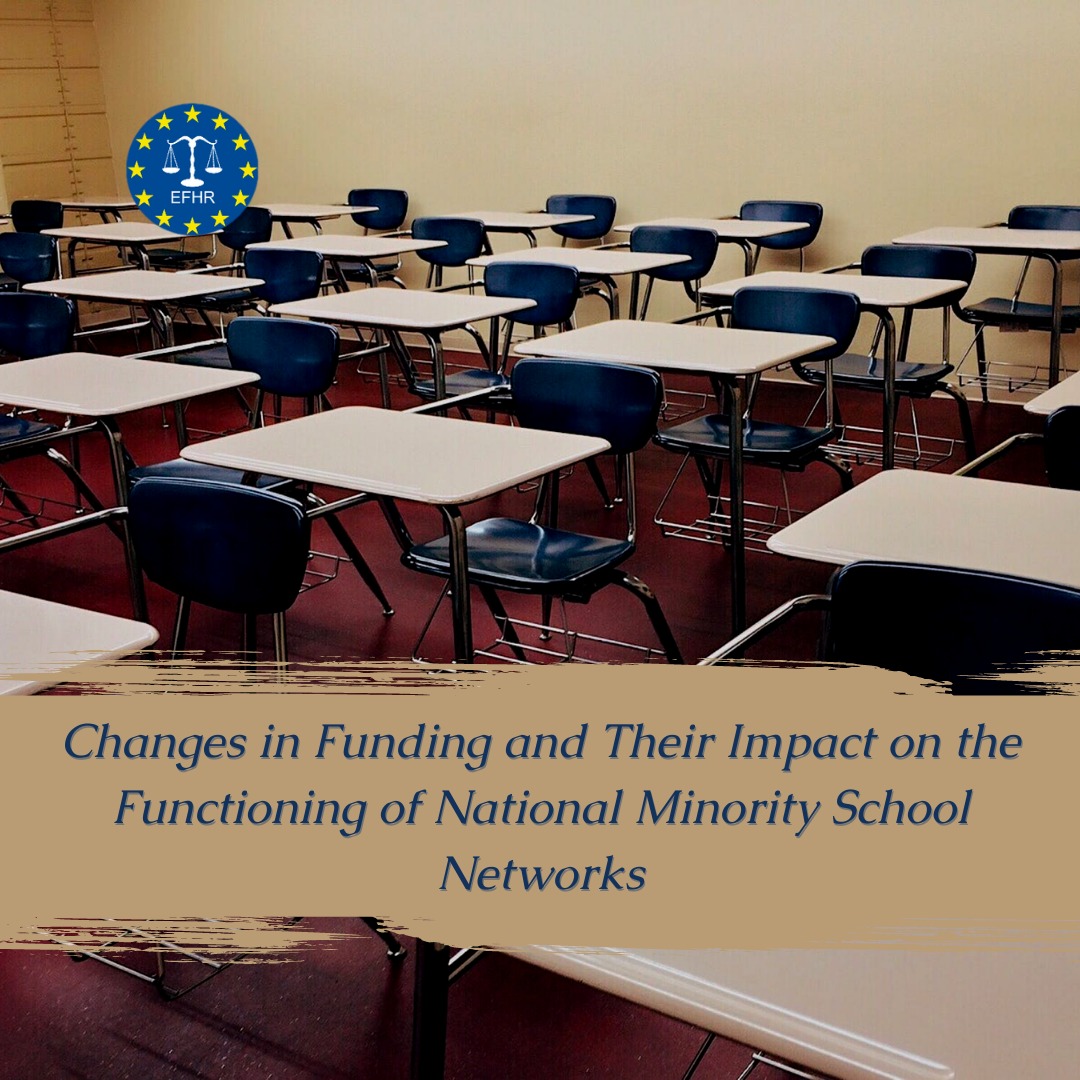- 2022/03/24
Changes in Funding and Their Impact on the Functioning of National Minority School Networks

A year ago, the Ministry of Education, Science, and Sport of the Republic of Lithuania (Hereinafter – MESS) presented an analysis of the education system and plans for the network of national minority schools for the coming years. Some of the objectives set have already been implemented in legal acts. Nevertheless, one of the most important issues for minority communities – the financing of schools, currently remains unchanged, but soon there will also be modifications in this area. In this article, we present the main changes in financing, their connections, and the consequences concerning the principles of functioning of minority educational institutions.
On March 25, 2021, during the meeting of the Board of the Association of Local Governments of Lithuania, the MESS report “General education schools: an overview of the situation, proposals for changes, and initiatives to improve quality” was presented. A few days later, MESS sent a letter to local governments, in which it introduced significant proposals for changes in the school network with the beginning of the new school year 2021-2022. Moreover, MESS sent a new letter to local governments earlier this year, which did not include significant deviations from previous proposals but rather detailed the planned changes. Although in 2021, the Government of the Republic of Lithuania changed the rules for creating a network of schools with formal educational programs, the description of the procedure for calculating, allocating, and using teaching funds does not yet reflect the announced changes. Despite this, MESS does not anticipate departing from the planned modifications. Due to the fact that local governments and educational institutions have not agreed on other operating conditions, we believe that we can rely on the information we already have.
The issue of funding is particularly important for schools of national minorities, especially in the face of the decreasing number of students throughout Lithuania. Schools of national minorities, as well as some institutions (in the Vilnius and Šalčininkai districts and the Neringa local government) with Lithuanian as the language of instruction, are exempt from the minimum requirement of students in the classroom and may form smaller groups than planned (8). This circumstance, however, does not provide an exception for state funding. Local governments that choose to approve smaller classes will need to provide additional funding to operate them.
The trend of creating incomplete classes in minority schools will also be higher because, in the next school year, it will not be possible to combine grades 5-8. Once the changes are implemented, combined grades will only be able to consist of two parallel classes, when previously it was possible to combine grades 1-4. Along with these changes, the existing rules for financing incomplete classes are maintained, i.e., 33% or 50% of the funds for teaching are financed from the state budget when there are 1-4 or 5-7 students in the group, respectively. In the plans presented by MESS, it is planned to reduce the funding to 0% in two years. However, MESS ensures that the next school year will be used to monitor the situation. If necessary, a transitional period will be set to prevent schools from suddenly losing all funding due to the functioning of incomplete classes.
Elimination of state funding means that local governments will become fully responsible for maintaining incomplete grades. These changes may consequently lead to the desire to liquidate or reorganize the functioning of these school institutions solely for financial reasons.
Currently, the fate of two Polish schools in the Trakai region (Andrzej Stelmachowski Primary School in Senieji Trakai and Longin Komołowski Junior High School in Paluknys) is at stake. The local government of the Trakai region is ready to reorganize these institutions by merging them with other Polish schools, although they formally meet all the requirements set out in the rules for the creation of school networks. During the meeting, which took place in Paluknys, according to the parents of the students, the authorities of the Trakai region were not able to indicate either the reasons why the school cannot remain independent or the benefits that the merger of schools would bring to children. The local government emphasizes that the financing aspect is not a decisive factor in making these decisions. Nevertheless, currently, the abovementioned schools are striving to remain independent institutions, maintain their legal status, and seek additional sources of funding.
The European Foundation of Human Rights (EFHR) monitors the development of the situation in the Trakai region; we will report on any new events. If you are interested in the topic of education of national minorities in Lithuania, we encourage you to continue reading. Details below:
- Minority Schools at Risk – EUROPEAN FOUNDATION OF HUMAN RIGHTS (efhr.eu)
- The Battle Over Education Continues – EUROPEAN FOUNDATION OF HUMAN RIGHTS (efhr.eu)
Translated by Marta Graban within the framework of a traineeship programme of the EFHR



